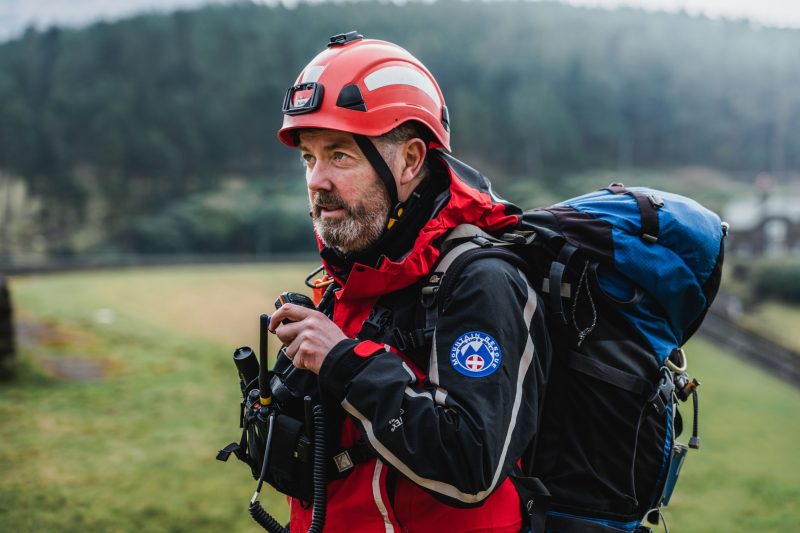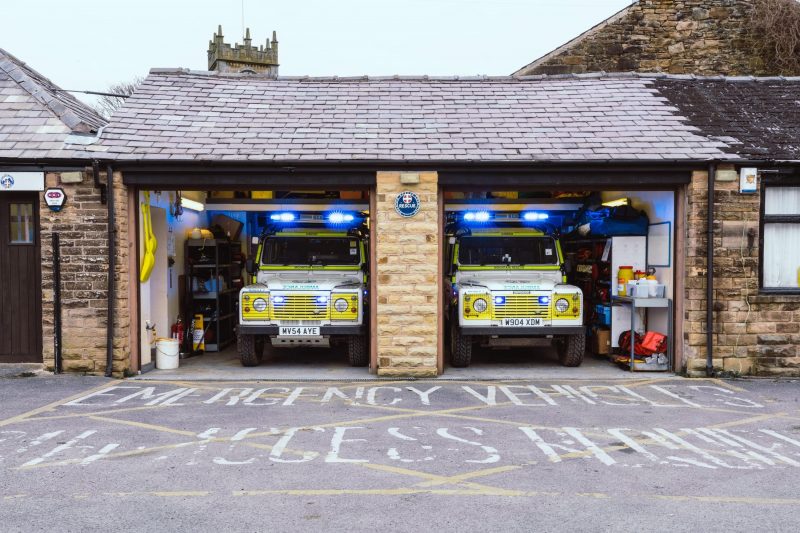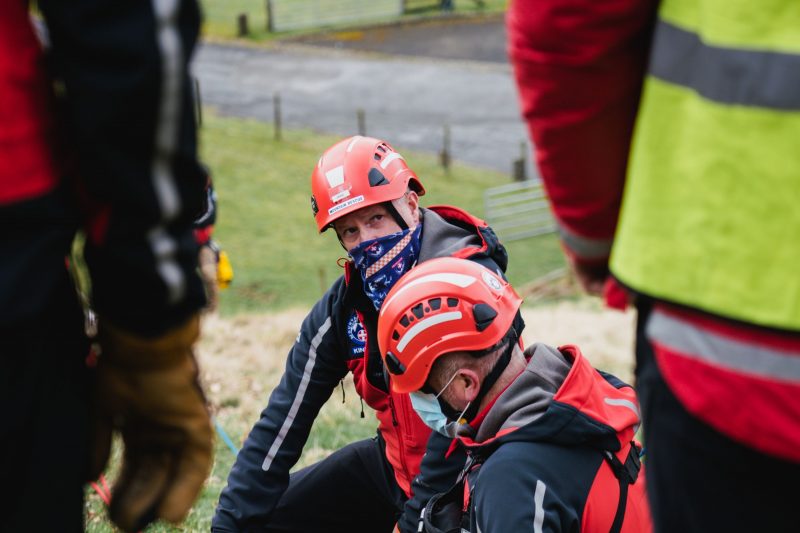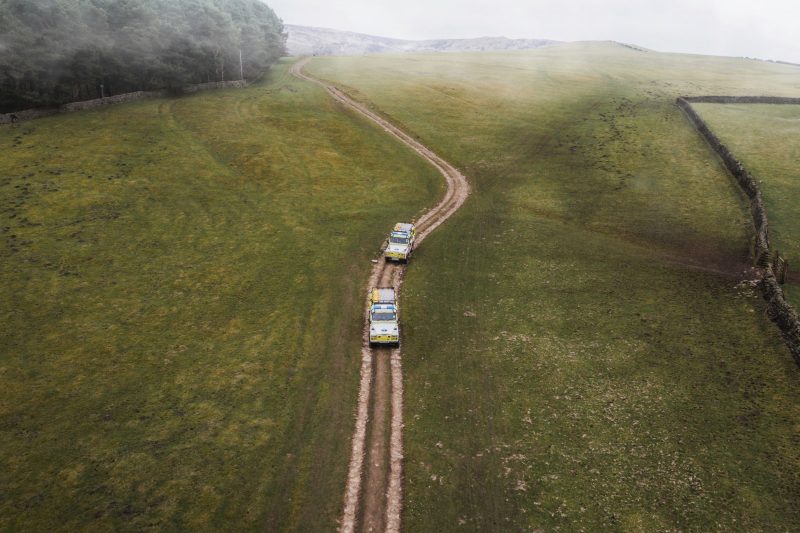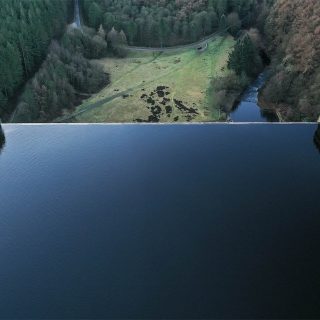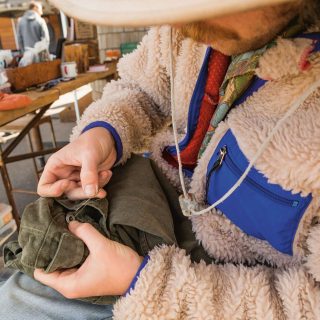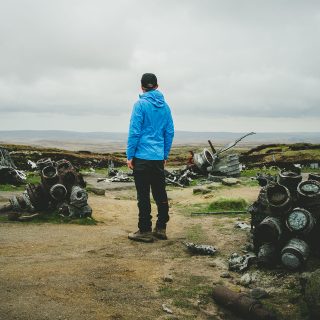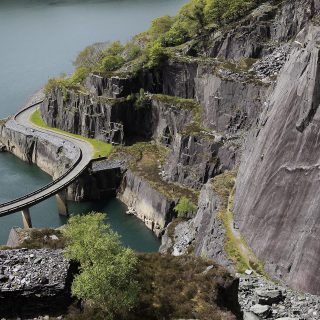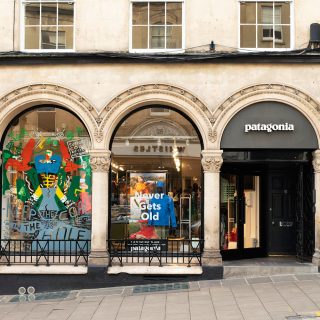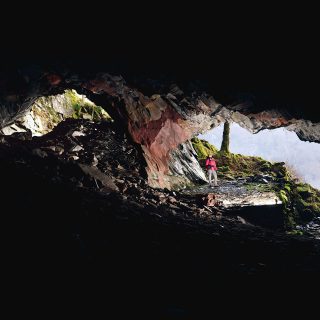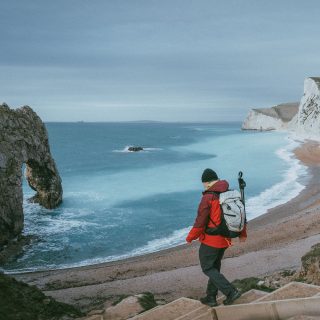Content Marketing: An Interview with Kinder Mountain Rescue
In another content piece for Mammut UK, we asked interviewer Sam Waller to speak with the Kinder Mountain Rescue team. Read the interview to find out more about what they do and how you can avoid meeting them.
Interview by Sam Waller. Photography by Sam Walker.
Normally when Kinder Mountain Rescue receive a call it’s for a far more pressing matter than the request for an interview.
But thankfully Deputy Team Leader Alan Howarth – in spite of balancing his full-time job, his family life, and his commitments as a mountain rescue volunteer – was able to take some time to speak with us as part of this content piece we worked on for Mammut.
You had a call-out last night. What happened? Were you out for long?
It was a straightforward one—we found them pretty quickly, but it was still about half 10 when we got home. It takes time.
Are call-outs like that a regular thing? How often do you head out?
You often get a couple of weeks where you get nothing, then you’ll have a sudden glut of callouts. We’ve done quite a few in the last couple of weeks, but we had two or three weekends before then when we didn’t get a call-out at all. Monday night is a rare one. The weird thing is that whenever you expect a call-out, it never happens.
On clear days with long daylight hours, we tend to go out more for injuries than anything else. If we get a call at three o’clock on a Saturday afternoon, there’s a fair chance it’s going to be an injury, whereas if we get a call at eight o’clock on a Saturday night, it’s probably going to be someone who’s lost.
Can you tell us any more about the call-out you had last night?
In this case, they were in our popular spot for rescues. Kinder has a major route around the edge—a path that everyone follows—and then there’s another path that halfway along disappears and people have to take random routes.
These guys did that, and it was really muddy. They had been knee deep in a bog, it’d gone dark and it was really cold and windy. They couldn’t decide whether to backtrack their route, or carry on, but they didn’t know how far they had to go, so they fortunately sat down and had mobile signal. If they didn’t have signal, it would have been very different.
We did one where a lady and her son were lost, and that was in the same place, but the difference was that they didn’t have signal, and we only found out about them as the police found their car in the car park.
Her husband called the police to say they hadn’t turned up, but that was after a couple of hours of waiting around, wondering why they weren’t back yet, and then it was maybe an hour for the police to come and check the car park. So we had no idea where they were, and it’s a huge area.
That changes things completely—that’s a full search.
In that scenario, we call all the teams in the Kinder area. There’s four of them, so that means there can be 30 or 40 people from each team, all out at the same time, plus search dogs. We’ve had that situation before where it turns out they’re not even there, but 120 people have turned out. It’s such a big area that you’ve got to absolutely blast it, otherwise by the time you find them it’s too late.
And you’re on call all the time for this? Or do you have shifts?
No, we don’t have shifts. The way we operate is that we work on the grounds that we need about 25 people to operate a call-out. We’ve got 50 team members, permanently on call all the time, and we assume we’ll get around a 50% hit rate of people turning up.
How did you get involved in the Mountain Rescue then?
This year is my 18th year. I used to be into climbing and the outdoors when I was single, and then when I got married and had kids, it kind of grinded to a halt a bit—I couldn’t just go off for the weekend with my mates climbing in the same way.
Just after my son was born, I was kicking my heels around a bit, and my wife had seen an article in the newspaper, saying the team were looking for members, and said why didn’t I apply. I thought, “Well, if you’re offering…” Because obviously it comes with a commitment from both of us.
It can be quite hard work, but I must be getting something out of it, because 18 years later, I’m still as keen.
Have things changed for Mountain Rescue since you’ve been involved?
The first thing that’s changed is that it’s gotten significantly busier. The number of people on the hill has gone up year after year, and it stands to shoot up because of lock-down. When we had the first lockdown, it went really quiet—we had absolutely nothing for about six weeks. And then when things opened up again, we suddenly got really busy.
The Peak District is one of the busiest national parks in the world, because it’s so near so many urban conurbations, so I think it’s going to continue to be ridiculously busy.
Modern technology must have changed things a lot too?
Yeah, technology has made quite a big difference. When I first joined, we were just moving away from pagers onto texts. But the big game changer was the launch of the first phone location service called SARLOC, which is…
The full interview continues on the Mammut website, What It Takes to Respond: An Interview with Kinder Mountain Rescue.
Support the heroic efforts of the rescue team by giving a one-off or monthly donation on their official KMRT JustGiving page.
Subscribe to our newsletter
